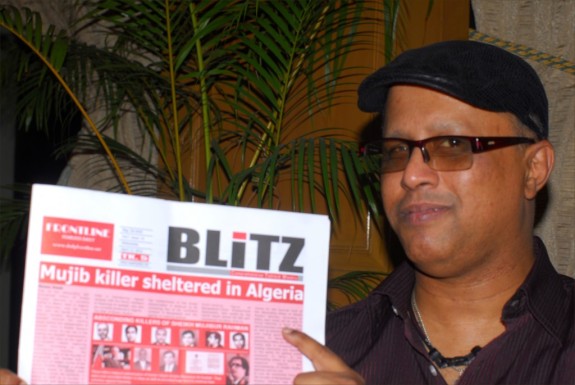Say this for Bangladesh newspaper editor Salah Uddin Shoaib Choudhury: He’s an incredibly courageous man.
Recently, he was sentenced to seven years in prison for his supposedly subversive articles and his abortive attempt to visit Israel, which citizens of this Asian nation are not permitted to visit.
He plans to appeal, but will probably have to serve time in jail.

Choudhury, the editor of the Weekly Blitz, an anti-jihadist newspaper, speaks his mind and displays the courage of his convictions.
He has been a critic of the Bangladesh government, whose prime minister, Sheikh Hasina, exhibits authoritarian tendencies. He has lashed out at Muslim radicals, who want to drag the country back into medievalism. And worst of all, for some at least, he’s sympathetic to Zionism and considers himself a friend of Israel.
In 2003, he was invited to address a conference in Tel Aviv on Islamic militancy in Bangladesh, an impoverished country of 120 million that has been lashed by natural calamities. But before he could board his flight, he was arrested, interrogated for 15 days and subjected to torture.
A year later, he was charged with sedition, treason and blasphemy, but these charges were dropped and he was released from prison.
Choudhury’s cavalier mistreatment reflects badly on Sheik Hasina, who has played fast and loose with the democratic process and has hounded one of Bangladesh’s most outstanding figures, Nobel Prize winner Muhammad Yunus, a visionary banker who lifted tens of thousands of Bangladesh citizens out of poverty by means of his micro-credit system.
Rather than needlessly persecuting a brave iconoclast like Choudhury, the government of Bangladesh should focus its attention on fixing the glaring and disgraceful problems afflicting its $22 billion garment industry, one of the world’s biggest. In the past year or so, factory building collapses have killed more than 1,000 underpaid workers, and Dickensian child labor practices, harkening back to the 19th century, continue to be a blight on Bangladesh.

Based on the evidence, one can only conclude that Sheik Hasina seems more interested in harassing and persecuting a brave editor than in fostering real democracy and bringing in long overdue industrial reforms.